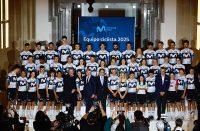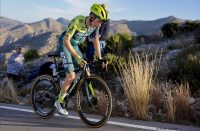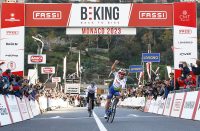This weekend in Japan, Taylor Phinney will zip up his EF Education First kit for the last time. He’ll pin on his numbers, and clip in for what is the final professional race of a career that’s been beautiful, frustrating, and everything in between.
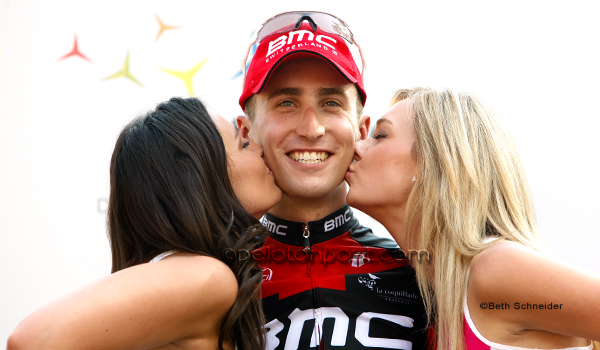
From the Olympics to the Tour de France to the cobblestones of Roubaix, there’s no one who’s done it quite like Taylor Phinney. He won numerous junior titles on the track and competed in the individual pursuit at the 2008 Beijing Olympics, finished fourth in the road race and time trial at the 2012 London Olympics four years later, completed two Tours de France and last season came in eighth at Paris-Roubaix, his favorite race.
He fought back from a career-threatening leg break sustained in 2014, and along the way began to ponder a life outside of professional racing. Eventually, the side of him hoping to explore art and music, the side of him hoping to dig deeper into a place rather than a suitcase… that side won out.
We talked to Phinney about his decision to move on from road racing, how he reconciles the expectations held by others for his cycling career with his own ambitions and dreams, and what’s next.
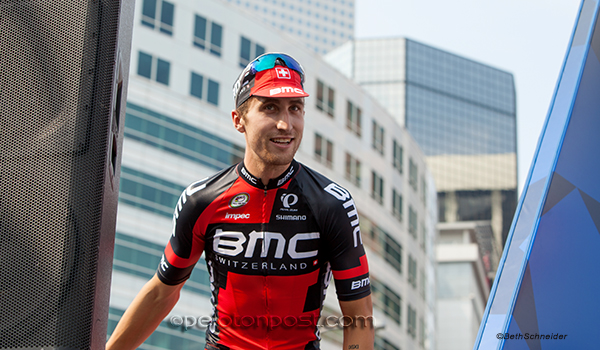
You’re retiring from professional cycling after nine seasons in the WorldTour and more than a dozen years of racing. What did it feel like to make that decision?
Well, first of all, it sounds funny that word, “retiring.” It doesn’t really feel like that for me. But I would like to extend a large amount of gratitude to the people who have followed my career for the last 12 years. I’ve felt a lot of really positive support from people and really no negativity. Just positivity and love. This decision has been something that I’ve been back and forth struggling with for a long time, and by a long time I mean a couple of years, and ultimately, I feel like my body sort of made this choice for me. I’ve now been injured longer than I’ve not been injured as a professional athlete. And I felt that it was a good time to click out and trade in my chips and get out of the casino. The support network that I’ve had through EF Education First, and then before EF with BMC, has been paramount to being able to stay on the bike and being able to line up for races. But at some point, you don’t want to just be lining up for races to finish them. It’s time to take that energy and put it into something fresh, something new, something unknown. I’m stepping away so that I can be more true to myself, which means to make art, to make music, to create and cultivate. I’ve kind of had one foot in the sports pool and then one foot in the art pool, and art just won at some point.
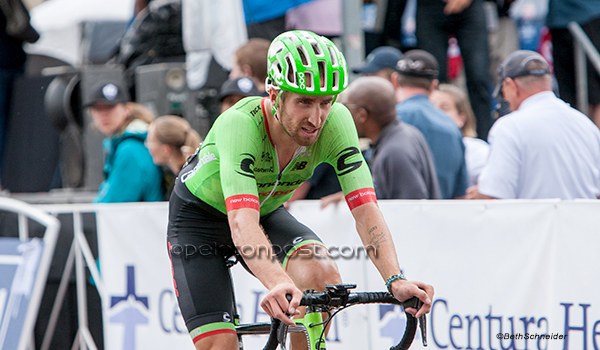
The fact that you showed incredible talent early on, the fact that your parents were both sublime cyclists — that certainly added up to a lot of expectation. Do you feel like you delivered on that? Does it matter?
I’m grateful that people would like to see me do amazing things on a bicycle. But the reality is, being touted as something, having talent or being told that you have talent… Talent is nothing without work ethic, and work ethic comes from genuine passion for what you’re doing. And if you are constantly forcing your work ethic because your passion is elsewhere, then potential and talent mean nothing. And if there’s anything that I can take away from the sport of cycling it’s that, you can be as talented as you want, but if you don’t wake up every morning and you don’t want that thing, it doesn’t matter. I think that there’s a lot of power in recognizing that you don’t have the genuine passion for the thing that you’re doing anymore. And then having the courage to make that choice, to make that decision when you’re so deep in it. I feel like I’ve been basically preparing for this for a while now, cultivating the ability to voice my honest opinion and say: “I think that I don’t want to do this anymore.”
So much of your life has involved racing. What memories stand out to you?
I think that my personal highlight was racing the USA Pro Challenge in Colorado when it existed and being able to race through my hometown of Boulder and up Flagstaff. That was super-duper fun… a total trip. Beyond that, this year, having Alberto win the Tour of Flanders, that felt like that kind of checked a box somehow. Just to be involved in something of that magnitude and see how difficult it is to actually win one of those things.
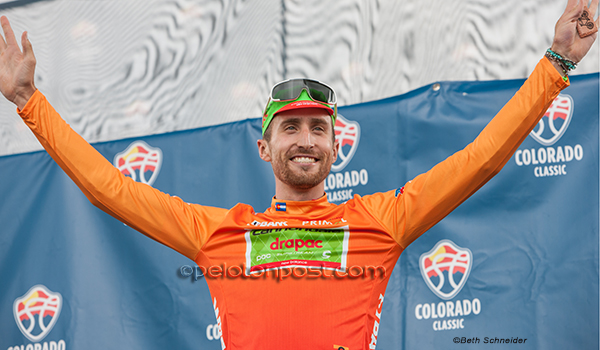
What’s the reaction been to your decision?
I haven’t really told that many people, to be honest. I can’t thank EF enough for the support that they’ve given me throughout this year to allow me to just finish things out. I’ve been loving every single day since I made the decision — riding my mountain bike a ton. It’s been overwhelmingly positive when I’ve talked to people about it. I mean, there’s a little bit of surprise involved, but then anybody who knows me, who really knows me, they’re just very happy that I was sort of finally able to make this decision.
What do you want to say to the Taylor Phinney fans?
I feel like everybody who follows me, who enjoys my personality, character, riding style, whatever … They’re going to be able to connect with me on a deeper level. I’m not going anywhere, is what I’m saying. I’ll be around and I want to try to help to change this sport from a different angle, just not from the racing side. And to be able to ride my bike for fun. I don’t want to race anymore, but I love riding my bike more now than I did when I started racing.
I’m so fortunate that I’ve been able to make a living from racing my bike and that I have this opportunity to step away at the age of 29, and to have a foundation that I can then step off of into wherever I want to go. To have that opportunity is one thing, but to take that opportunity — I feel like it doesn’t happen very often, and I want to be one of those people who takes that opportunity.
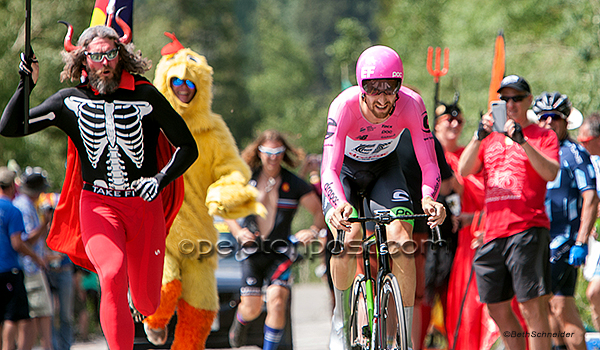
No more racing at all?
You may or may not see me in an enduro race next year. If I’m going to race anything, it’s going to be that. I just want to shred, you know? I was born into a cycling family, but I really fell in love with sport through freestyle skiing… Like Jonny Moseley and Shane McConkey. Shane McConkey especially was my number-one hero. And I decided to be a cyclist instead of a skier because, somehow, I thought it was safer for my body, and I was also better at it. But now I’ve sort of had this return to freestyle extreme sports through my mountain bike, and it’s… I feel like a 15-year-old again.

